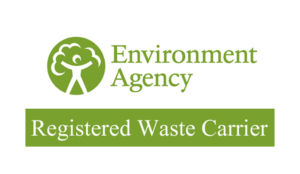Covid Testing: A Haulier’s Guide
Covid testing – with rules and regulations getting increasingly complex, it’s hard to keep track of what applies to you. In light of the recent change in restrictions, we have compiled all the latest info from the Government.
When do I test? How often do I test? Do I even need to test? These are all questions we have asked ourselves recently. It can get confusing at times but hopefully this guide will shine a light on the course of action right for you.
COVID-19 Testing After Entering England
Hauliers arriving in England from abroad must take a COVID-19 test if they are staying for more than 2 days. You will need to take a further test every 3 days after that, if you are still in England. This applies to both UK-based and non-UK hauliers.
If you do not have proof of a negative COVID-19 test, you could be fined up to £2,000.
When Is Covid Testing Not Needed?
You do not need to take a test if you will be in England for 2 days or less.
You also don’t need to take a test if you arrive in England from the Common Travel Area (CTA). The CTA is the UK, Ireland, the Channel Islands or the Isle of Man. You must have only been in the CTA in the 10 days before arrival. If you have been outside the CTA in the 10 days before you arrive in England, you must take the tests.
When Do I need to Get Tested?
You must take the first test within 2 whole days of your arrival. The day of your arrival is counted as day 0.
You must take the second test between 3 and 5 days after your arrival.
You must take your third test between 6 and 8 days after your arrival.
The date and time of your arrival will be collected and recorded in the passenger locator form, which you are required to complete.
What Happens If I Can’t Get A Test?
If you cannot get a test at a time when one is due, for example because of temporary closure of testing facilities or lack of provision in the area, you should take a test as soon as possible once you can access a testing site.
You are only required to take these tests while you are in England.
If you are in another part of the Common Travel Area (UK, Ireland, Channel Islands and Isle of Man) when a test is due, you do not need to take that test until you return to England. You should take the test as soon as you can when you return to England.
Where Can I Get A Test?
Free testing for hauliers is available at haulier advice sites around the country.
You do not need to book a test in advance, but you should check the list of sites to make sure they open and if they are likely to be busy.
You can also use:
Workplace Testing: if your company has bought the tests from an authorised test provider
Community Testing: check for community testing sites in your area
home-based testing
(Community testing facilities are not accessible to HGVS. There are no HGV parking provisions, so this option is available only to hauliers who can access sites by foot or car. You may need to make an appointment for a test at a community testing facility.)
Where UK-based international hauliers use workplace or home testing, they will be expected to register the fact of the test on the NHS app. This registration can then be used as evidence.
What Happens at the Covid Testing Site?
When you get to the test site do not leave your vehicle except to use the rest facilities or when asked to by a member of staff.
A member of staff will give you a test kit. You then administer the test yourself by taking a swab at the back of your throat and the inside of your nose using a long cotton bud.
After you’ve taken the test you will need to return to your vehicle and wait for 30 minutes for the results.
If Your Test Result Is Negative
You will receive proof of your negative result if you test negative.
Staff will then direct you to your departure point and you’ll be able to continue your journey.
Keep the result safe. If you lose it, you’ll need to take another test.
If Your Test Result Is Positive
You cannot continue your journey if the test result is positive.
What you do next depends on where you can safely self-isolate.
For more information on this please consult GOV.UK.
Hopefully this answered all of your questions. If you have any further queries, get in touch with us via our Twitter or LinkedIn pages and for more blogs from us, click here. And most importantly, stay safe!






